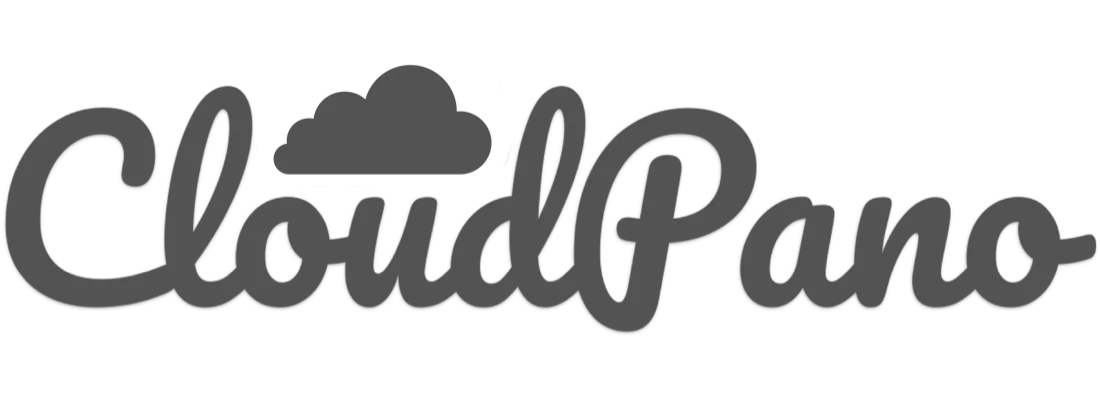As we step into 2025, the landscape of documentation software continues to evolve, presenting businesses with a variety of choices. If you're on the lookout for alternatives to DocuSketch, you're in the right place. This article will explore some of the top DocuSketch competitors, highlighting their features, pricing, and user experiences to help you make an informed decision for your organization.
Key Takeaways
- DocuSketch competitors offer diverse features tailored to specific industries.
- Pricing structures vary widely, including subscription and one-time purchase options.
- User reviews can provide insights into the reliability and performance of each software.
- Integration capabilities with other tools can enhance workflow efficiency.
- Mobile accessibility is becoming increasingly important for users on the go.
Alternatives To DocuSketch

Overview Of Top Competitors
When you're looking at alternatives to DocuSketch, it's good to know there are options out there. Several software solutions offer similar features, but with different approaches to documentation and data capture. Some popular names you might come across include Matterport, CloudPano Floor Plan Scanner, and iGUIDE. Each has its own strengths, whether it's in ease of use, pricing, or specific features tailored to certain industries. It really depends on what you need the software to do for your business.
Key Features To Consider
When comparing DocuSketch alternatives, think about the features that matter most to you. Here's a quick list:
- Accuracy: How precise are the measurements and models generated?
- Integration: Does it play well with other software you already use?
- Speed: How quickly can you capture and process data?
- Reporting: What kind of reports can you generate, and how customizable are they?
Don't just focus on the flashy features. Think about the day-to-day tasks you'll be performing and choose a solution that makes those tasks easier and more efficient.
User Reviews And Ratings
User reviews can be a goldmine of information. Look beyond the marketing hype and see what actual users are saying about different platforms. Check out sites like G2, Capterra, and TrustRadius to get a sense of the pros and cons of each option. Pay attention to recurring themes in the reviews, both positive and negative. This can help you avoid potential pitfalls and find a solution that truly meets your needs.
Leading Software Solutions
Comparing Features And Pricing
When you're looking at alternatives to DocuSketch, it's important to really dig into what each software actually does and how much it costs. Some platforms might seem cheaper at first glance, but they could nickel and dime you with add-ons or have hidden fees. Others might have a higher upfront cost but include everything you need right out of the box. For example, Buildertrend is a popular option for residential construction project management software.
Here's a quick look at some key things to compare:
- Core Features: Does it do what you need it to do? Think about floor plans, 3D models, and reporting.
- Pricing Structure: Is it a subscription? A one-time fee? Per user? Make sure you understand the long-term costs.
- Scalability: Can the software grow with your business? You don't want to switch platforms every year.
Integration Capabilities
One of the biggest headaches with new software is making sure it plays nice with your existing tools. Does it connect with your CRM? Your accounting software? What about your claims processing software? If you're using Pictastic.ai for virtual staging AI software, you'll want to make sure your documentation software can easily import and export those images. A lot of time can be wasted manually transferring data between systems, so integration is key.
It's worth spending the time to map out your current workflow and identify any potential integration issues before you commit to a new platform. This can save you a lot of frustration down the road.
Customer Support Options
Let's face it: software can be tricky. When things go wrong, you need to know you can get help quickly. Look at what kind of customer support is offered. Is it just email? Is there phone support? Do they have a knowledge base or tutorials? Some companies, like Five Sigma, offer claims management tools, and they might have specialized support for that. Good customer support can make or break your experience with a software platform. Consider these points:
- Availability: Is support available 24/7, or only during business hours?
- Response Time: How quickly do they typically respond to inquiries?
- Support Channels: Do they offer phone, email, chat, or a combination?
User Experience And Interface

Ease Of Use
When you're looking at documentation software, how easy it is to use is super important. Nobody wants to spend hours figuring out how to do something simple. The best programs have a clear layout, buttons that make sense, and aren't confusing to look at. Think about it: if it's a pain to use, people just won't use it.
- Intuitive design
- Simple navigation
- Clear instructions
Customization Options
Not every business is the same, so the software shouldn't be either. Being able to change things to fit your needs is a big plus. Can you change the colors? Can you add your logo? Can you make it work the way you work? If not, it might not be the best fit. For example, a Tour Creator SDK can help tailor the experience for specific app-based tours.
- Adjustable settings
- Personalized branding
- Flexible workflows
Customization is key. The more you can tailor the software to your specific needs, the more efficient and effective it will be for your team.
Mobile Accessibility
These days, everyone is on the go. If you can't use the software on your phone or tablet, you're missing out. A good app lets you do almost everything you can do on a computer, right from your pocket. Mobile accessibility is not just a nice-to-have; it's a must-have.
- Responsive design
- Offline access
- Cross-platform compatibility
Industry-Specific Solutions
Real Estate Applications
Real estate is getting a tech makeover, and documentation software is a big part of it. Agents are using these tools to create virtual tours and detailed property reports, making it easier for potential buyers to view properties remotely. This is especially useful for out-of-state buyers or those with busy schedules. Plus, accurate floor plans and measurements can help avoid disputes later on. Think of it as a way to give buyers a more complete picture of a property before they even step inside. 360° virtual tour software is becoming a must-have.
Insurance Industry Tools
Insurance companies are always looking for ways to streamline claims processing, and documentation software is a game-changer here.
- Faster Claims: Documenting damage with photos and measurements speeds up the assessment process.
- Reduced Fraud: Detailed records make it harder to file fraudulent claims.
- Better Communication: Clear documentation helps insurance adjusters communicate with policyholders and contractors.
Insurance companies are starting to integrate AI into their solutions. This means when you use their products, you are accessing AI. This helps pre-approve the scope, estimate, and billings so that the agreed price and scope are authorized and streamlining the project payment and completion process.
Construction Management Software
Construction projects involve tons of paperwork and documentation. Construction management software helps keep everything organized and accessible. This includes:
- Project Tracking: Monitoring progress and identifying potential delays.
- Compliance: Ensuring projects meet building codes and regulations.
- Collaboration: Sharing documents and updates with all stakeholders.
Ultimately, it's about making sure projects stay on schedule and within budget. It's about time the construction industry caught up with the times!
Pricing Models And Plans
Subscription-Based Pricing
Most DocuSketch alternatives operate on a subscription model, which means you pay a recurring fee, usually monthly or annually, to access the software. This model often includes ongoing support, updates, and access to new features. The cost can vary widely depending on the number of users, the features included, and the size of your projects. For example, some platforms start at around $20 per month for basic plans, while more comprehensive solutions can cost upwards of $150 per month. It's important to carefully evaluate what's included in each tier to ensure it meets your specific needs. Some companies offer tiered plans that allow you to scale up or down as your business evolves. A good example is a platform that starts at $149/month, suitable for businesses of all sizes.
One-Time Purchase Options
While less common, some documentation software offers a one-time purchase option. This can be attractive if you prefer to avoid recurring fees. However, it's important to consider that one-time purchases may not include ongoing updates or support, potentially requiring you to pay extra for upgrades in the future. This model can be cost-effective in the short term but may become more expensive over time. One example is a software with a starting price of $295 as a one-time payment. This can be a good option if you want to avoid monthly fees.
Free Trials And Demos
Before committing to a specific documentation software, take advantage of free trials and demos. These allow you to test the software's features, user interface, and overall performance to see if it aligns with your requirements. Many vendors offer a trial period of 14 to 30 days, during which you can explore the software's capabilities without any financial commitment. Demos, on the other hand, typically involve a guided tour of the software's features by a sales representative. This can be helpful in understanding the software's capabilities and asking specific questions. Make sure to use this time to test the software with real-world projects to get a true sense of its suitability. When you're ready to scale your real estate services, consider these options:
- Evaluate the features offered during the trial period.
- Assess the ease of use and integration capabilities.
- Determine if the software meets your specific needs.
Choosing the right pricing model depends on your budget, project volume, and long-term needs. Consider the total cost of ownership, including subscription fees, support costs, and potential upgrade expenses, before making a decision.
Performance And Reliability
Speed And Efficiency
When you're dealing with documentation software, speed is everything. Nobody wants to sit around waiting for scans to process or reports to generate. We're talking about how quickly the software handles large datasets, processes images, and generates those all-important reports. The faster, the better—plain and simple. Think about it: time saved on processing is time gained for analysis and action. It's not just about raw speed, though; it's about how efficiently the software uses your system's resources. Does it bog down your computer, or does it run smoothly in the background?
Downtime And Maintenance
Let's be real, software glitches happen. But how often? And how disruptive are they? Downtime can kill productivity, especially when you're on a tight deadline. Regular maintenance is a must, but it shouldn't mean the software is constantly unavailable. Ideally, updates and maintenance should be seamless, happening in the background without interrupting your workflow. We need to consider how responsive the vendor is when issues arise. Is there a quick fix, or are you left hanging for days? A reliable vendor with solid support can make all the difference. Cloud-based solutions often have an edge here, with updates handled centrally.
User Satisfaction Ratings
User reviews are gold. They give you a real-world perspective on how the software performs day in and day out. Look beyond the marketing hype and see what actual users are saying about Cloud Claims's reliability and performance. Are there consistent complaints about slow processing, frequent crashes, or poor support? Or are users generally happy with its speed and stability? Pay attention to trends in the reviews. A few negative reviews might be outliers, but a pattern of complaints is a red flag. Also, consider the source of the reviews. Are they from reputable sites, or are they potentially biased?
It's important to remember that no software is perfect. There will always be some users who experience issues. The key is to look for software with a track record of reliability and a vendor that is responsive to user feedback. A good balance of features, performance, and support is what you're aiming for.
Future Trends In Documentation Software
Emerging Technologies
Documentation software is on the cusp of some pretty big changes. We're talking about things like AI stepping in to automate tasks, and augmented reality offering new ways to interact with data. These technologies promise to make documentation faster, more accurate, and way more user-friendly.
- AI-powered data extraction
- AR-enhanced collaboration
- Blockchain for secure document management
Market Predictions
I think we're going to see a lot more consolidation in the market. The smaller players might get bought up by the bigger ones, and we'll probably see more specialized software popping up to cater to niche industries. Integration is going to be key. Companies will want software that plays nice with all their other tools. For example, virtual tour software will need to integrate with other platforms.
Impact On Business Operations
Documentation software isn't just about creating documents anymore. It's becoming a central part of how businesses operate. It's affecting everything from project management to customer service. Companies that embrace these new technologies will be the ones that thrive. Those that don't? They might get left behind.
The future of documentation is all about efficiency and automation. Businesses will need to adapt to these changes to stay competitive. Expect to see a shift towards more intelligent and integrated solutions.
As we look ahead, documentation software is set to evolve in exciting ways. We can expect smarter tools that help us organize and share information more easily. Features like AI assistance and better collaboration options will make it simpler for teams to work together. If you want to stay updated on these trends and see how they can benefit you, visit our website for more information!
Wrapping It Up
In the end, picking the right DocuSketch alternative really comes down to what your business needs. Each option we looked at has its own strengths and weaknesses. Some might be better for small teams, while others shine in larger operations. It’s all about finding the right fit for your workflow. Take your time to compare features, read user reviews, and maybe even try a few out. The right tool can make a big difference in how you manage your projects and keep your clients happy. So, don’t rush it—do your homework and choose wisely!
Frequently Asked Questions
What is DocuSketch?
DocuSketch is a software tool that helps businesses create documentation for various purposes, like real estate and insurance.
Why should I consider alternatives to DocuSketch?
You might look for alternatives to find better features, lower prices, or tools that fit your specific needs more closely.
What features should I look for in documentation software?
Important features include ease of use, integration with other tools, and good customer support.
Can I try these alternatives for free?
Many software options offer free trials or demos, so you can test them before making a purchase.
How do I know if a software is reliable?
Check user reviews and ratings to see what other people think about the software's performance and reliability.
What trends should I watch for in documentation software?
Emerging technologies like AI and mobile access are changing how documentation software works, making it more efficient and user-friendly.














.png)



.png)







.png)

.png)




